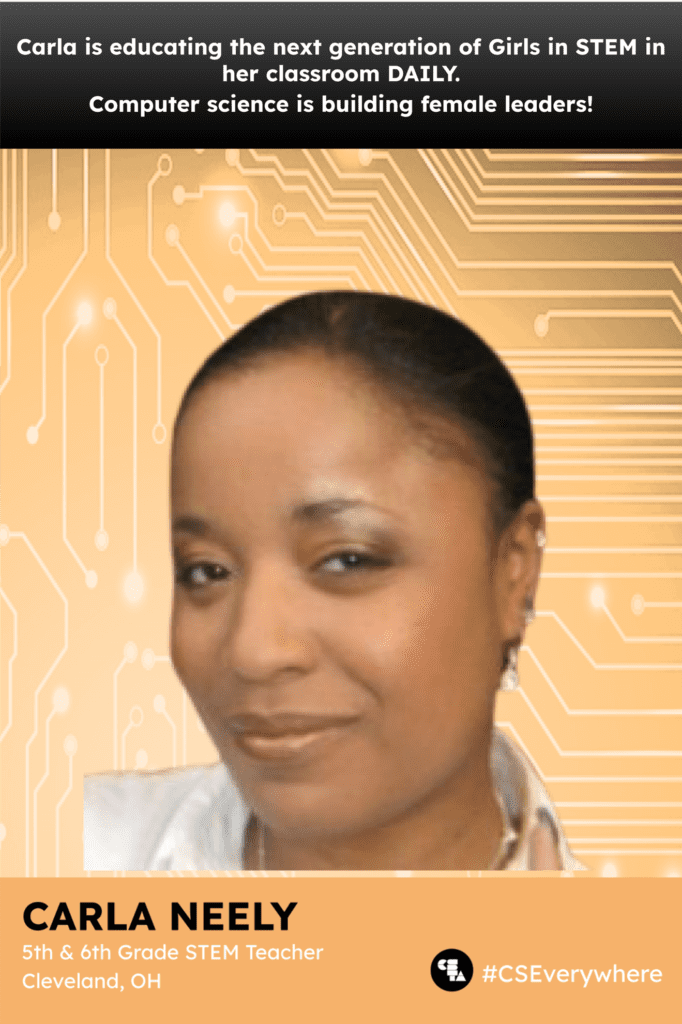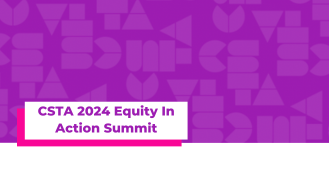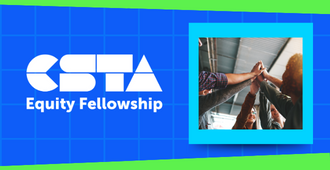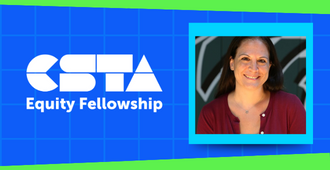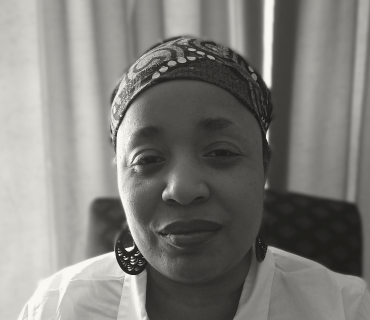
“Before I define equity, I had to learn that there is a difference in education between equality and equity,” shared CSTA Equity Fellow Carla Neely.
Full Story
“Before I define equity, I had to learn that there is a difference in education between equality and equity,” shared CSTA Equity Fellow Carla Neely. “Educators and political leaders of all levels tend to blend both entities together, which ends up being detrimental to the individual child. In school, equality is often associated with access and outcomes.”
“Equality asserts that every student should have the same access to a high-quality education regardless of where they come from,” she continued. “It also requires that all students be held to the same standards and objectives regardless of their circumstances, abilities, or experiences. Equity recognizes that different students need different resources to achieve the same goals as their peers. Equity highlights what is fair for the individual. In public education, both group and individual needs are important.”
Neely feels that it is essential for girls to have the opportunity to use their creativity and individuality in science and computer science. She is the 2022 Ohio Department of Education District 11 Teacher and one of the four finalists for Ohio’s 2022 Teacher of the Year.
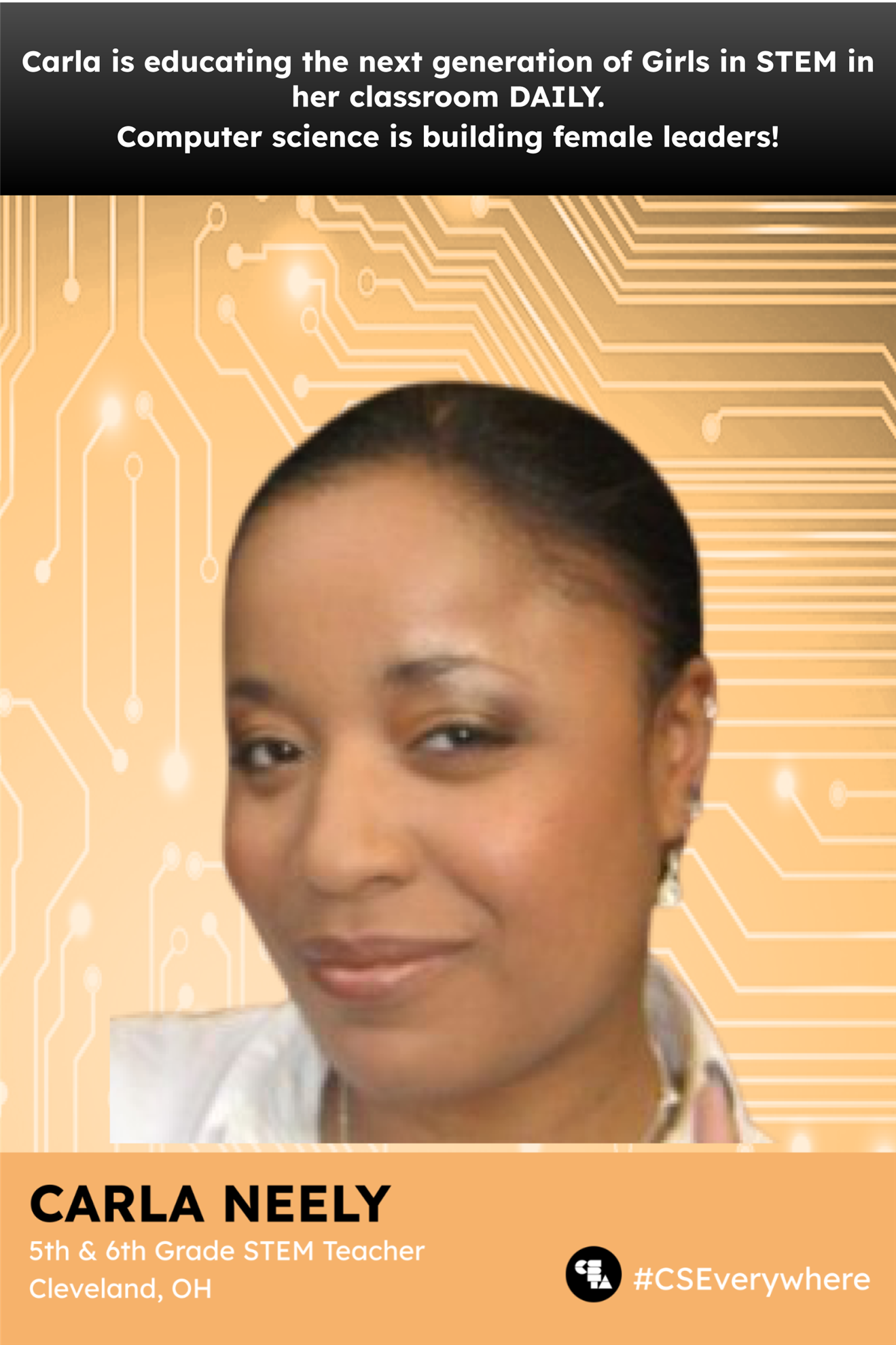 Neely teaches fifth and sixth-grade science and computer science at Warner Girls’ Leadership Academy (WGLA) for the Cleveland Metropolitan School District in Cleveland. When she joined WGLA, Neely shared her experience with her students.
Neely teaches fifth and sixth-grade science and computer science at Warner Girls’ Leadership Academy (WGLA) for the Cleveland Metropolitan School District in Cleveland. When she joined WGLA, Neely shared her experience with her students. “One of the first things that I did was to have the tough conversations with my students about what it’s like for me being an African American female STEM teacher and how I handle myself when I am either the only female at my trainings and/or the only African American person there.”
After sharing her story, Neely introduced her students to female mentors. In partnership with Case Western Reserve University’s STEM Program, women of all colors, races, and religions majoring in different aspects of STEM came to speak with her students.
“There were girls who were undergraduate, masters’ and doctoral students who came to mentor the girls,” shared Neely. “Most times, the mentors would work with the girls on their activities. This act showed my students that there are girls in STEM.”
Neely also taught a book study on “Hidden Figures” to show her students that African American women are in STEM. Both ideas taught her students that there are different types of women in STEM, and African American girls are welcomed in that field with open arms.
“This also boosted the girls’ self-esteem and confidence in learning computer science,” said Neely. “I also noticed the girls with behavior problems, learning disabilities, and low-achieving did better with computer science than my advanced learners. I feel the reason is because computer science is hands-on, and it meets students where they are and takes them further. Computer science has also improved my students’ communication skills because they have to learn how to problem-solve.”
Neely advocates for urban education and exposes African American girls to different aspects of science and computer science. To tackle the inequities of computer science education, she has become a CS facilitator and a Code.org Computer Science Discovers facilitator. She’s also the interim secretary for CSTA-OH and a member of the CSTA Editorial Board. Additionally, she was a facilitator at the Pathfinders 2021 Summer Institute.
“During this time, I gave my testimony of how I reversed the narrative on how African American girls are viewed in CS and how they view themselves,” shared Neely. “I also taught the teachers how to deal with their own biases with regards to the roles of African American girls and boys in CS.”
Through the CSTA Equity Fellowship, Neely would like to develop as an African American female STEM teacher in order to reverse the narrative of how African American girls are viewed in computer science.
“I would also like to continue to learn ways to increase the number of African American girls in CS at my school,” said Neely. “I want to start there first and then move district-wide. As of right now, I am the only teacher at my school who teaches CS and only for my students on my roster. Once they leave me, CS education stops. With that being said, I also want to learn how to train teachers at my school on how to integrate CS into other subjects. I want to dismiss the narrative that CS is only for science, CS, and STEM teachers.”
Learn more about the CSTA Equity Fellowship and this year’s cohort here.

